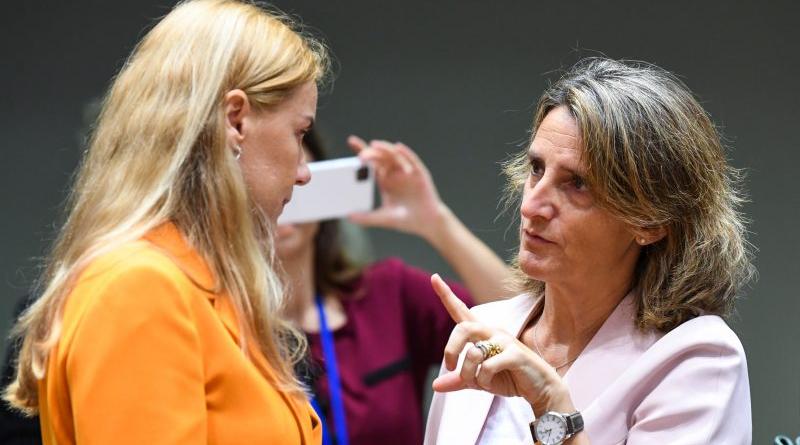The current electricity market model was designed in different times and has proved to be vulnerable to stress situations. An overhaul is now needed to facilitate the deployment of renewables, writes Teresa Ribera.
In February 2022, Russia invaded Ukraine. It triggered an unprecedented energy price crisis that has made apparent the importance of accelerating the energy transition and moving toward the decarbonisation of the economy and Europe’s strategic and energy autonomy.
It is a transition that requires us to delve into the socially and environmentally organised deployment of renewable energies. We need to achieve a responsible and secure energy model with more stable and competitive electricity generation costs.
At the same time, given the intermittency of renewable generation, we need to generate an environment that facilitates the storage and availability of manageable technologies to provide durability to the electricity system.
In most cases, they require significant initial investments but have practically zero variable operating costs, yet consumers do not benefit from this in the current model, which was designed in different times, and with generation systems that are far removed from the model that Europe is committed to today.
It is time to evolve the market design and send the right signals. In the energy transition, we need to combine competitive prices for renewables that benefit society and the economy with certainty for investments in new generation, storage, and manageability so that we can continue to drive this transformation.
The electricity market today is based on an essential premise: to remunerate what it costs to generate each MWh (i.e., variable costs, at the price of the most expensive technology at any given time).
This model has allowed, for many years, more efficient technologies to be promoted and the most advanced technologies to develop, given that they were certain to obtain sufficient income over their useful life to cover the initial investment, as long as other, more expensive technologies continued to represent a significant percentage of the generation mix.
However, the deployment of renewables has not necessarily translated into savings in consumer bills, generating a dissonance between the message launched by governments and international organisations with the perception of society, industry and economic agents on the importance and advantages of this change of model.
Paradoxically, in the energy system of the future, it is foreseeable that technologies with almost zero variable costs will drive more expensive technologies out of the system. This explains why, in this scenario, we need a different remuneration model.
That is, one that is not based on variable costs but recognises upfront investment costs and the availability of technologies that can respond adequately when needed.
The current crisis has shown how vulnerable the current design of the electricity market is to stress situations as well as the tremendous consequences for domestic consumers and, undoubtedly, a total risk of demand destruction due to the increase in energy poverty.
In the last year and a half, we have observed how any eventuality that affects the variable costs of the latest technology to cover electricity demand — e.g., natural gas — has a regressive impact on electricity prices and on the economy as a whole.
This is an increase at the expense of consumers as a whole, the competitiveness of the economy, and the well-being of our societies. It is also at the expense of taxpayers and the public debt when tax measures, subsidies, or compensations are taken from public budgets. To resolve this issue, we have adopted innovative measures, temporarily, tax measures.
The Iberian solution applied in Spain and Portugal has allowed us to mitigate the contagion effect of high natural gas prices on the electricity market. In fact, Spanish consumers have so far saved an artificial cost overrun of more than 4 billion euros.
However, these temporary measures do not solve the underlying problems of the electricity market, in order to send out the signals that are needed to build the energy model to which, as a European society, we have agreed to aspire.
It is essential to urgently address a reform of market regulation with a dual purpose. First, it is imperative to facilitate the deployment of renewables, storage, and the availability of backup technologies.
Second, it is essential to ensure fair and efficient operation in the distribution of income between energy consumers and producers in situations of crisis and volatility in the raw materials markets.
To this end, we need to continue to have a short-term market that reflects the cost of energy and encourages energy-efficient use patterns.
Simultaneously, we need to incentivise availability and the signing of long-term contracts that provide stability in the price paid by consumers and predictability of revenues to incentivise upfront investments in renewables, storage, and availability. The role of regulation is key to favouring this new framework.







